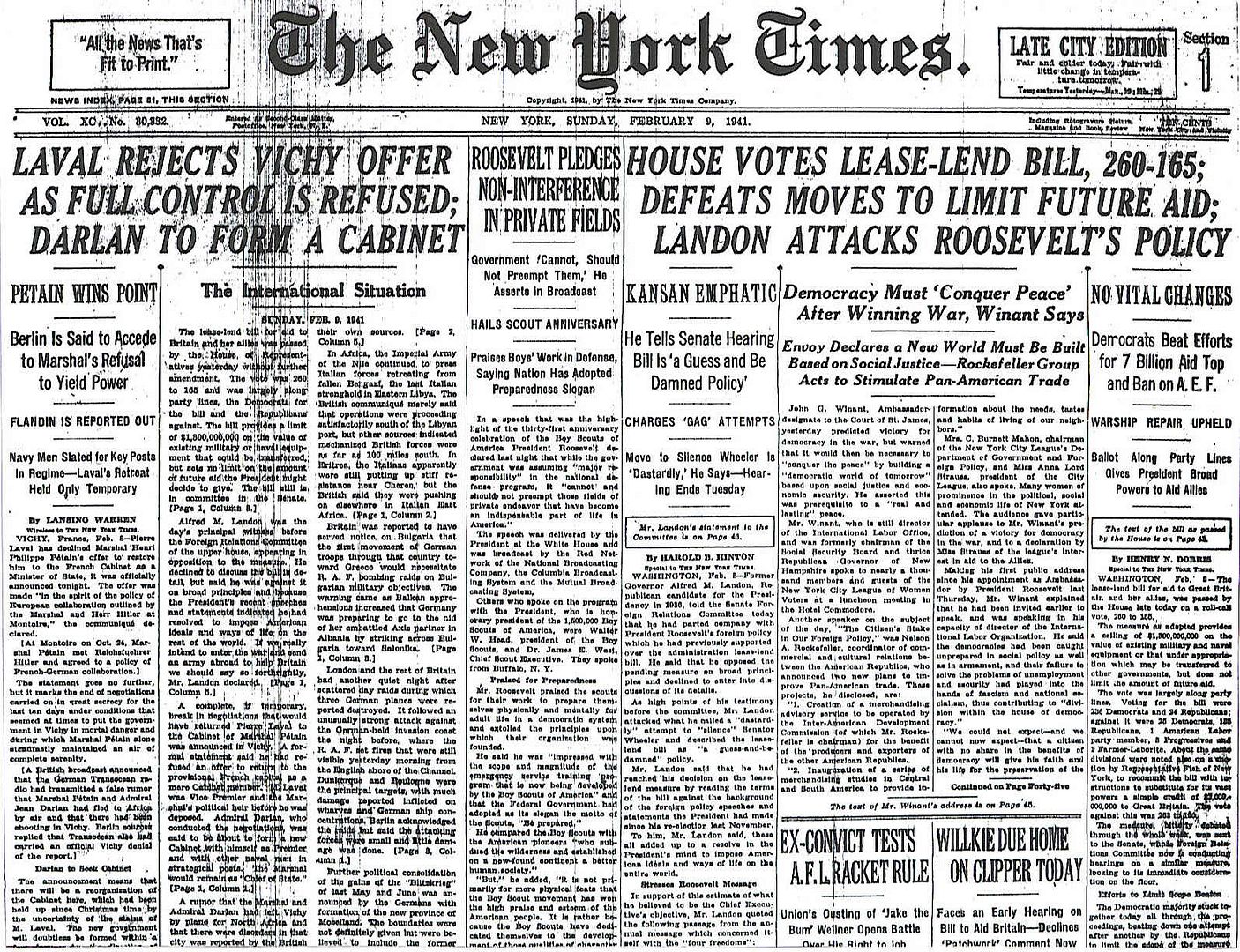
Posted on 02/09/2011 5:05:59 AM PST by Homer_J_Simpson

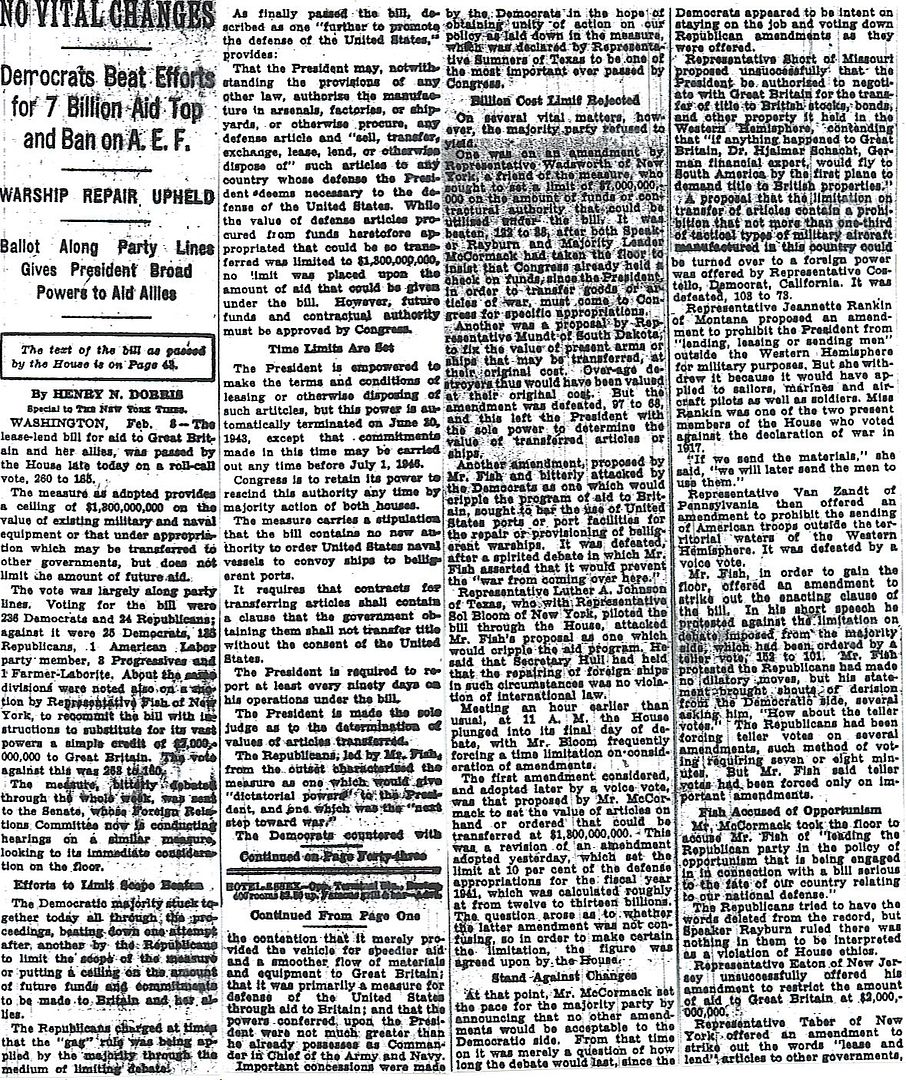
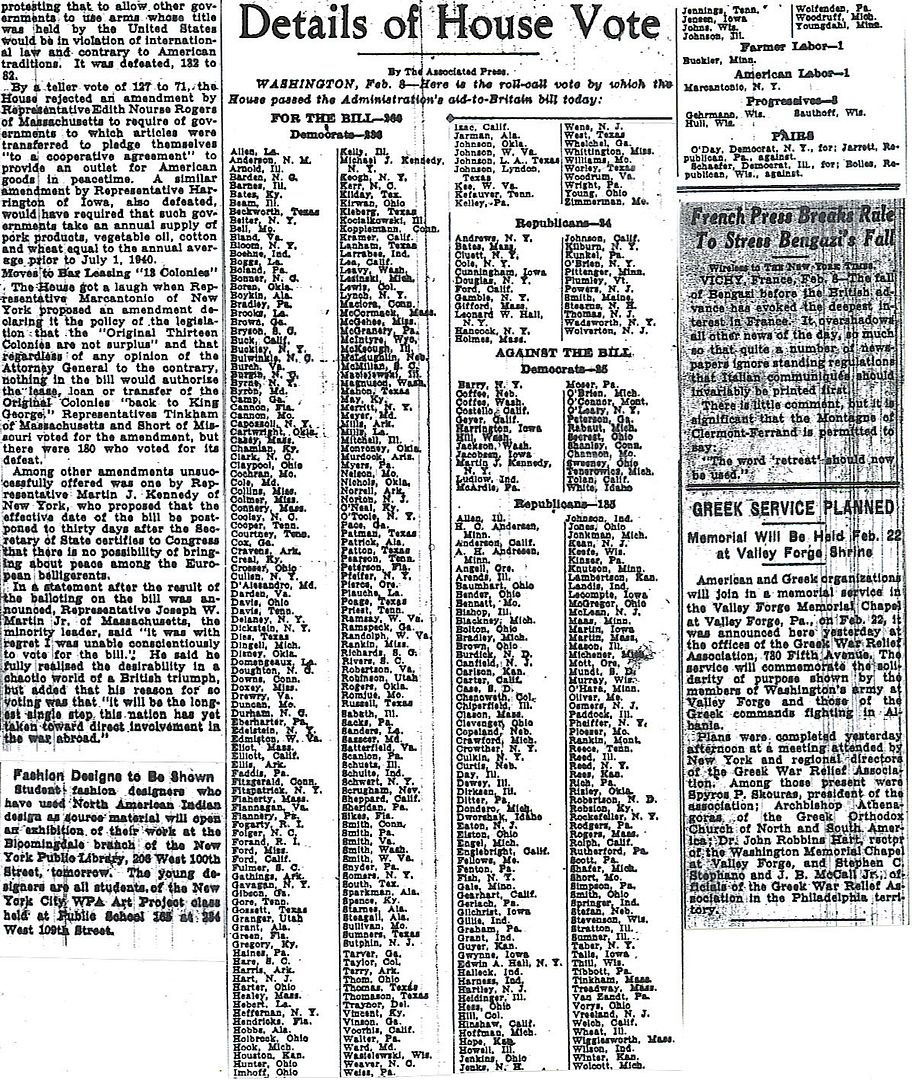
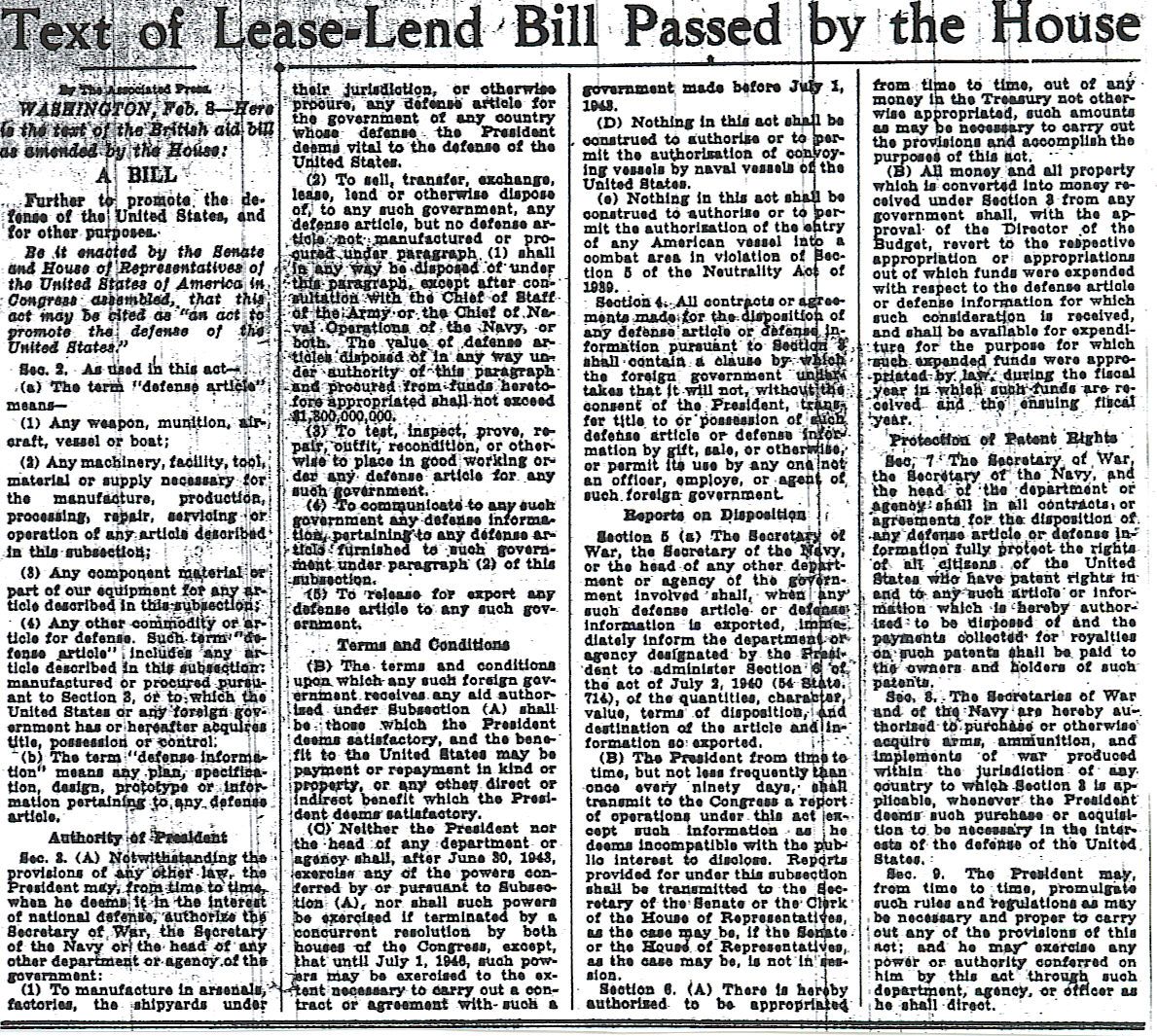
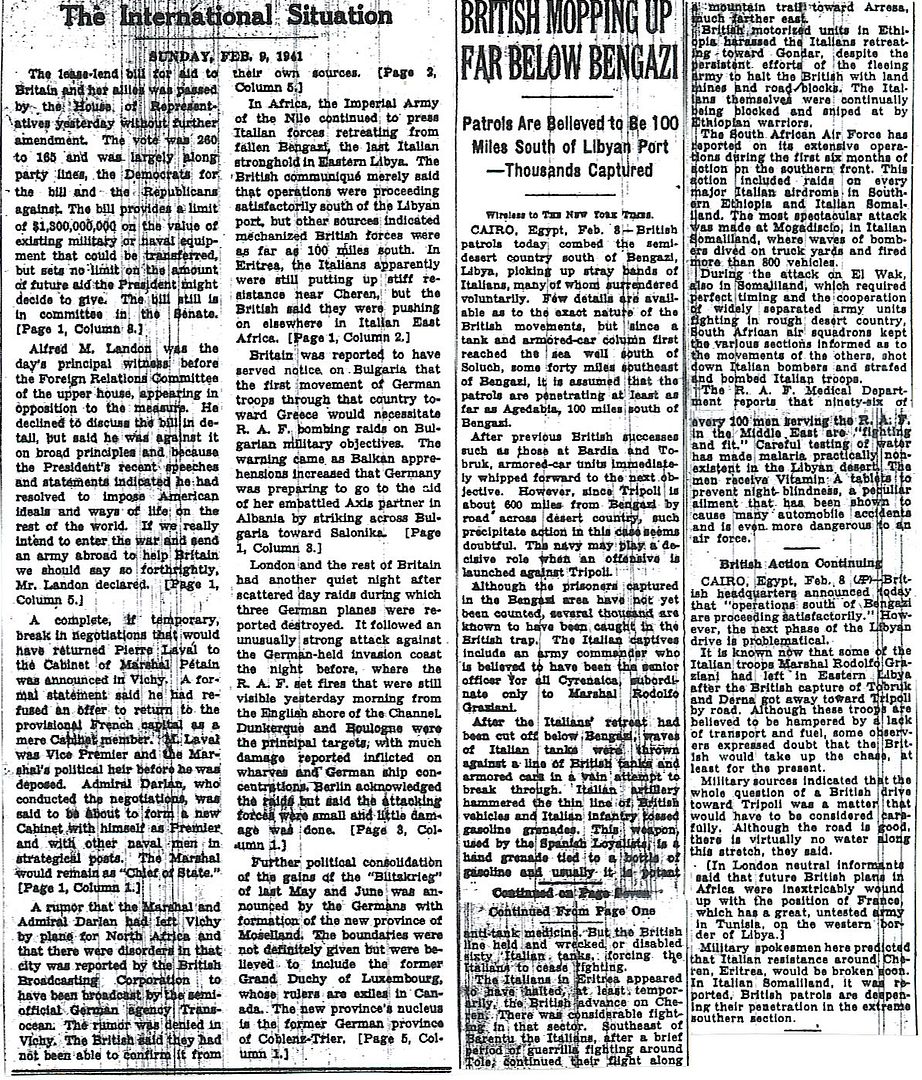
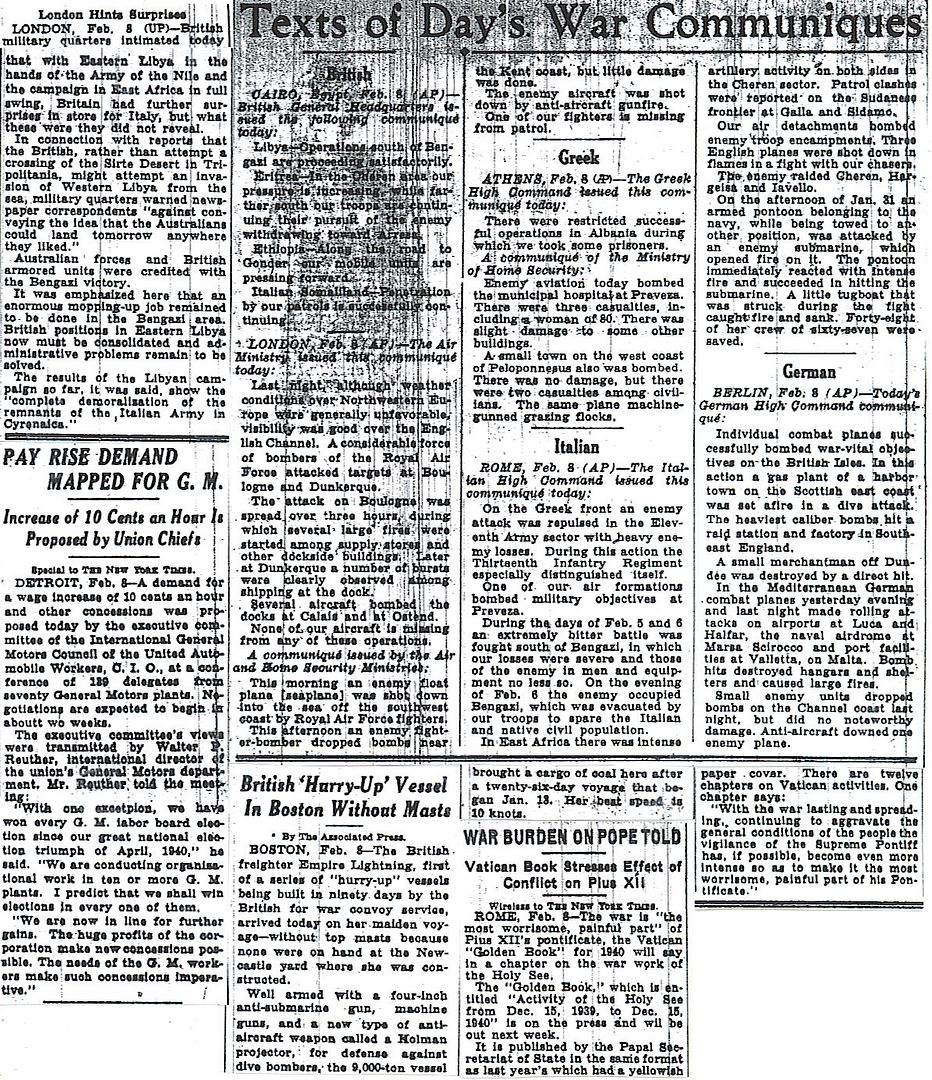
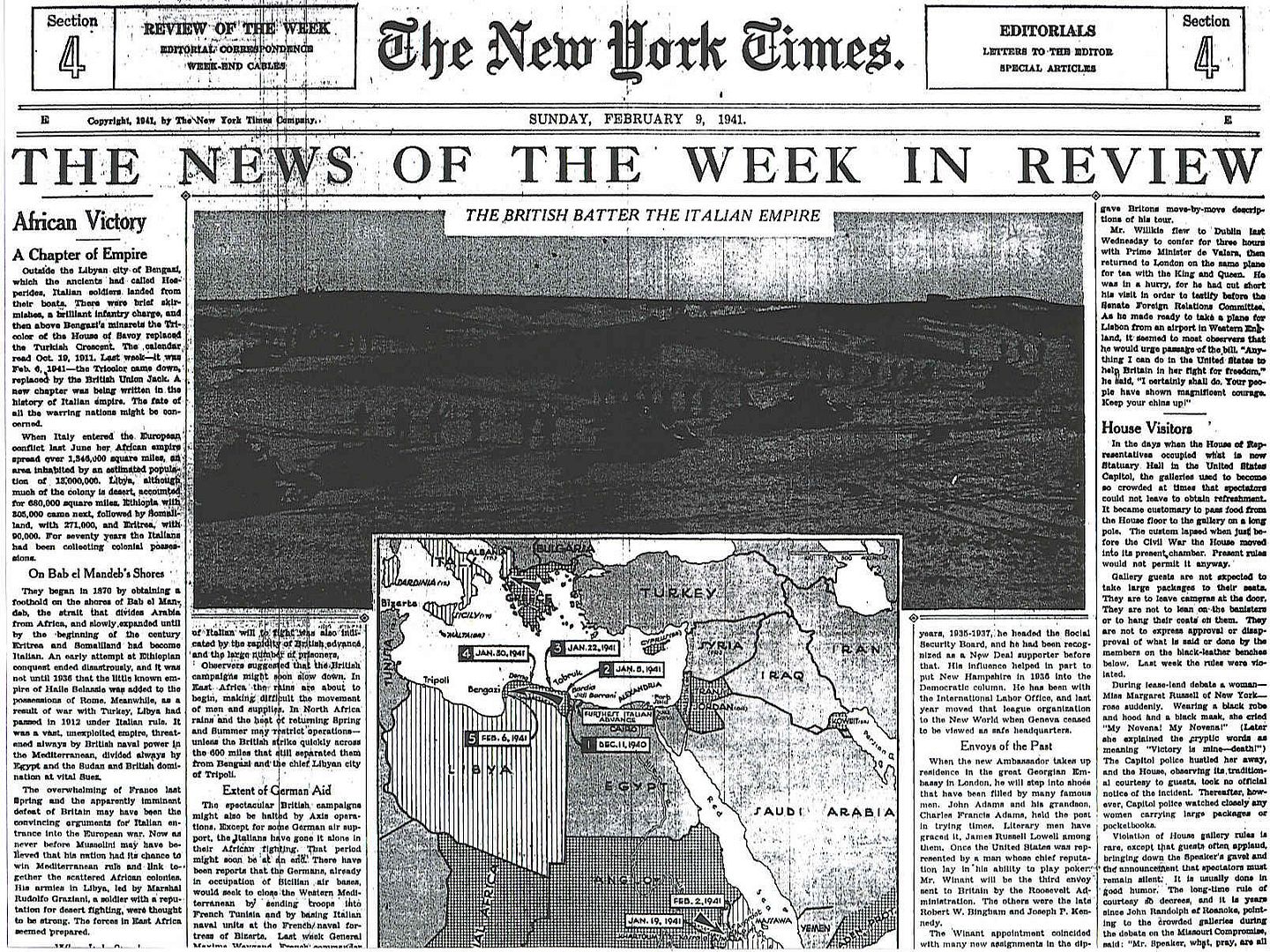
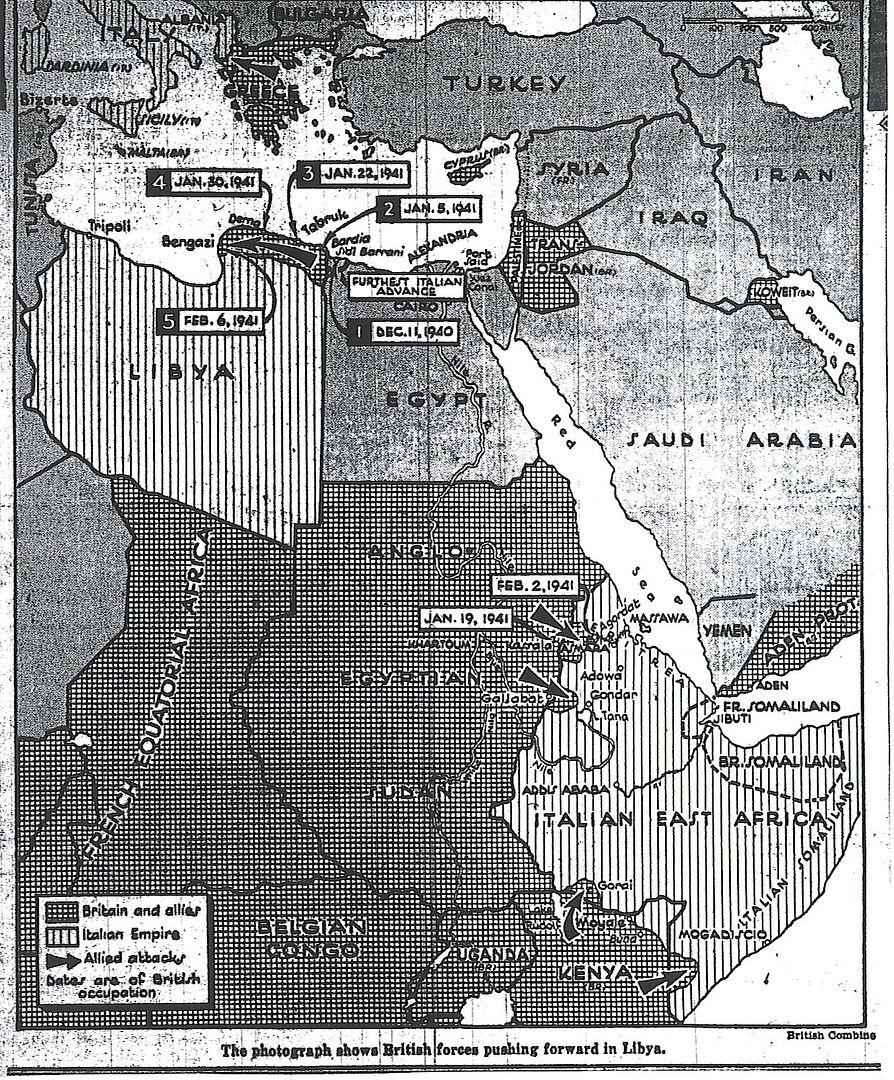
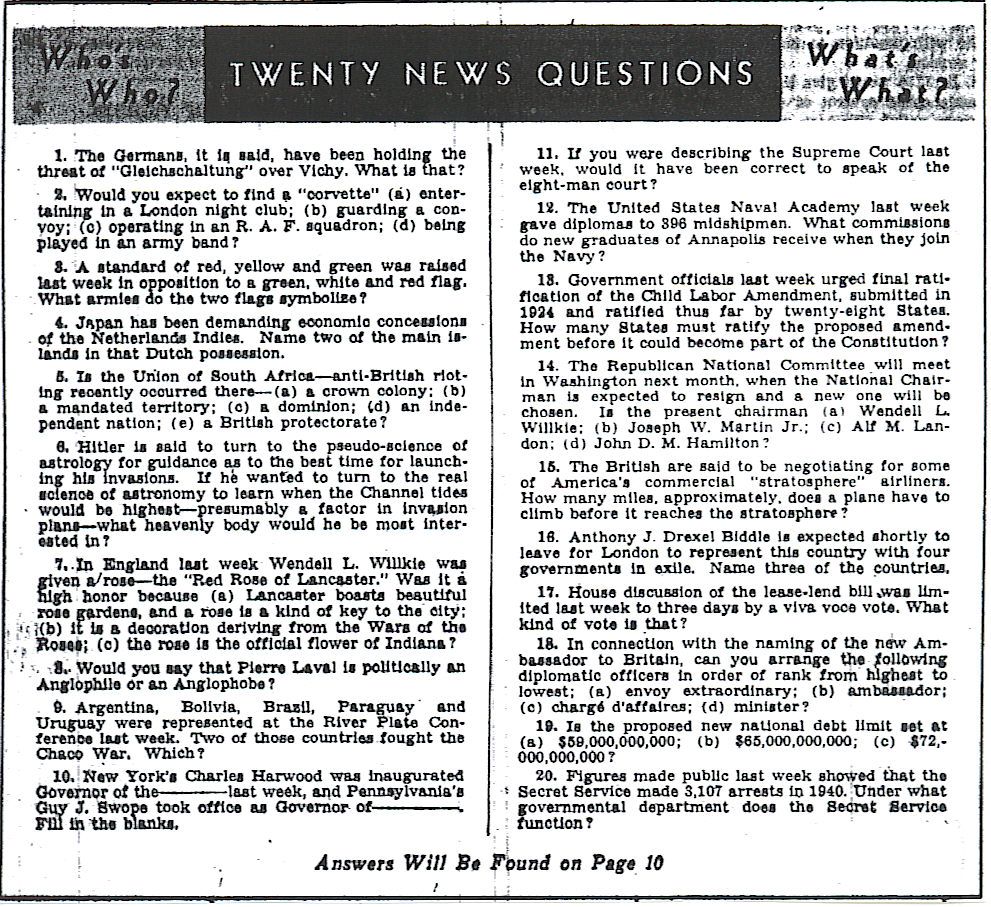
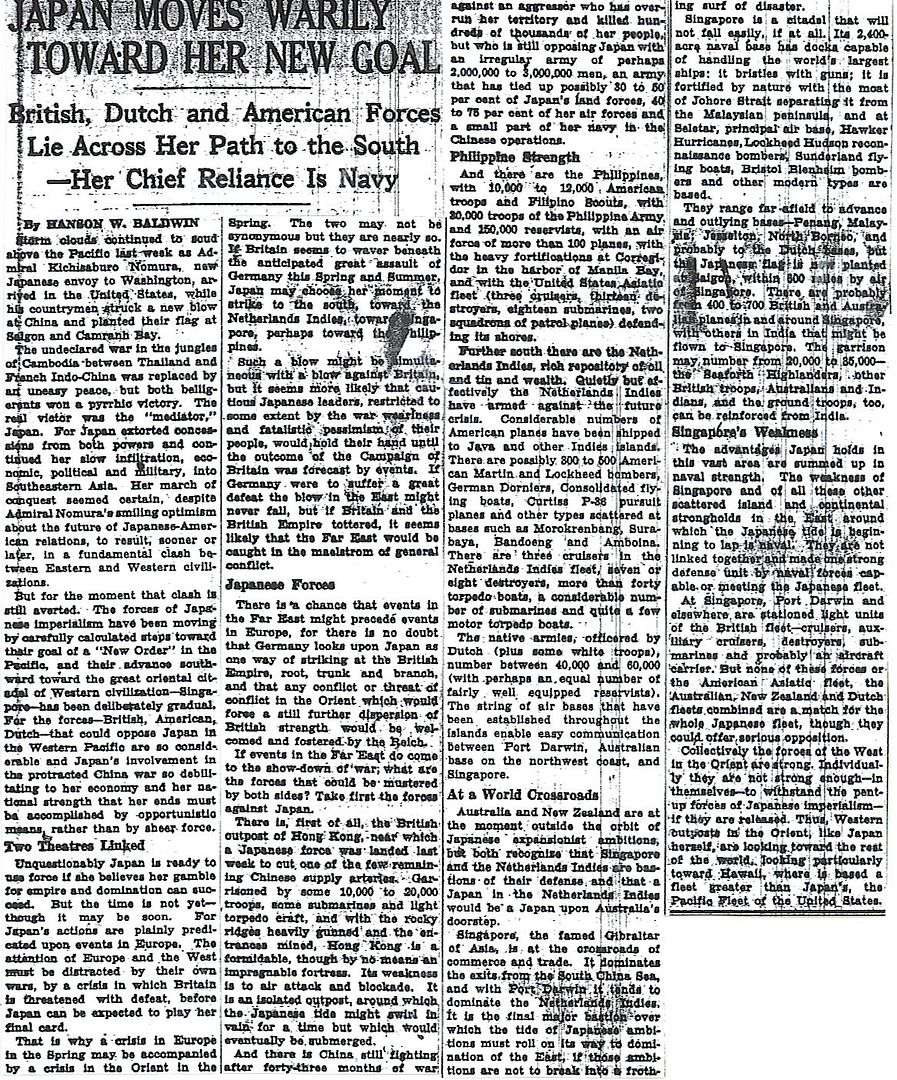
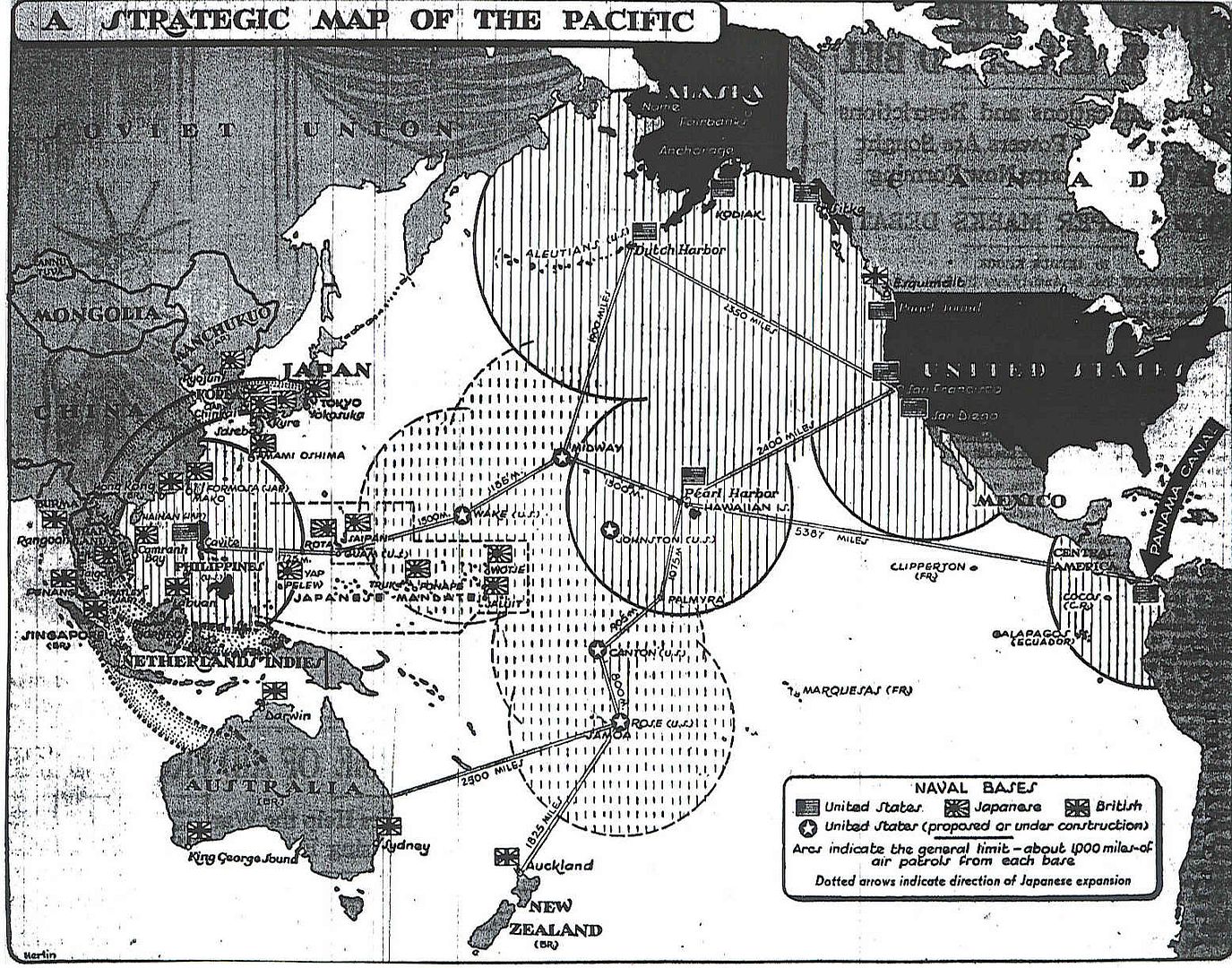
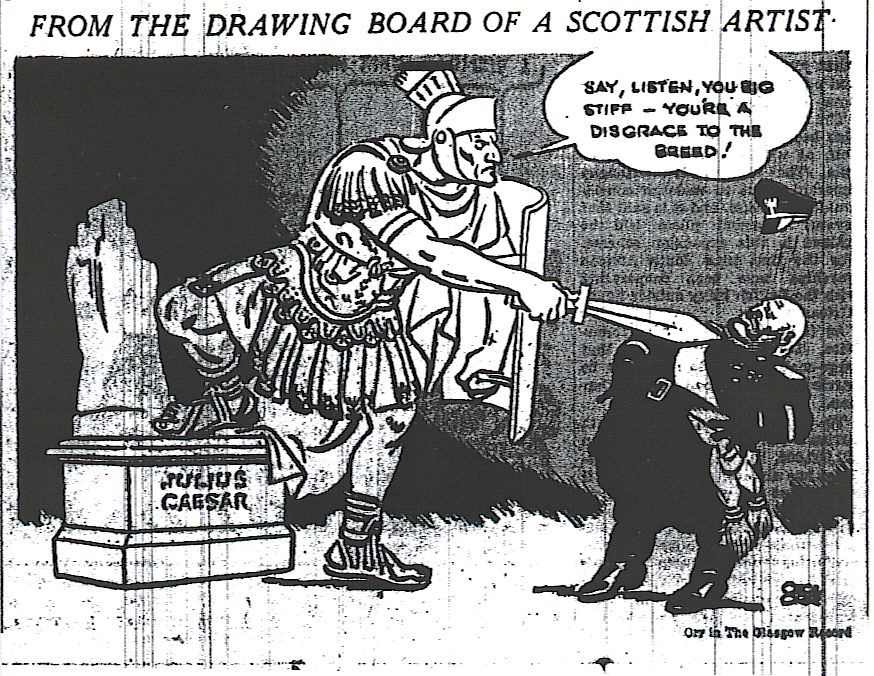

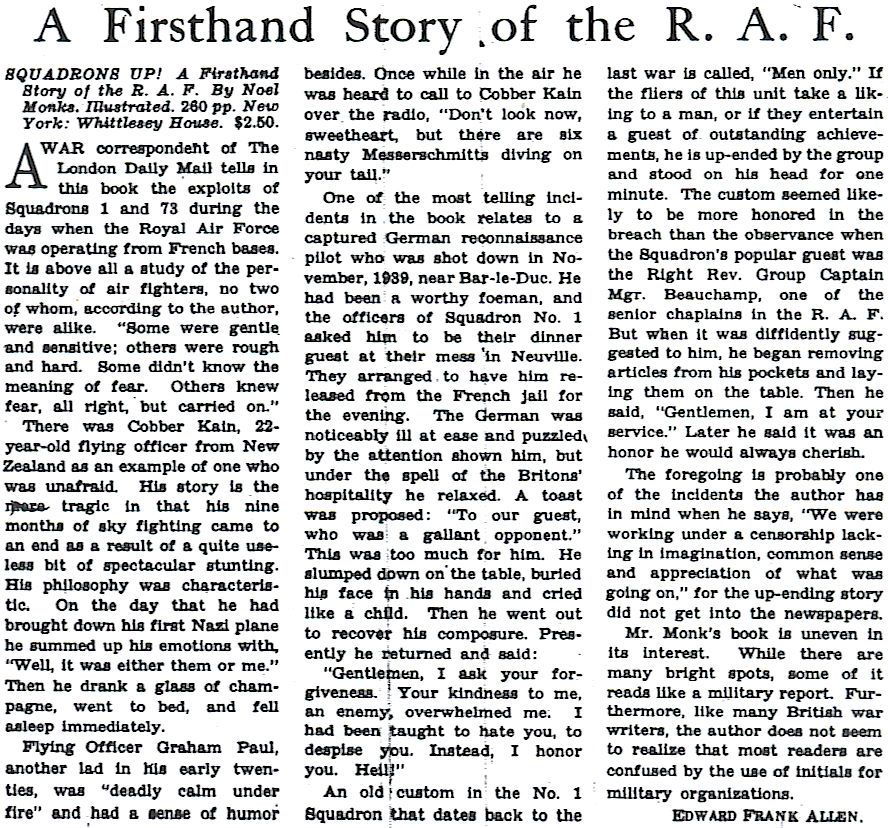
David P. Colley. The Road to Victory: The Untold Story of World War II’s Red Ball Express. Washington D.C.: Brassey’s, 2000. 215 pp. ISBN 1-57488-173-6.
"We were assigned where we were needed. There was no schedule because there was no schedule." - Sergeant Jack Blackwell of C Company of the 514th Quartermaster Truck Regiment
 When the American army landed on the beaches of Normandy, they brought with them something that no other army had attempted before. They brought a complete commitment to the use of a fully motorized army. With this motorized army came a fully motorized logistics system to support it. The difficulties of supporting the multiple allied armies became apparent very early on in the campaign. Supporting the units in and around the beachhead using only the limited access of supplies at the beaches was tedious at best. When the armies broke out after operation COBRA, the problem only became extreme. Supplies were reaching the beaches and piling up near the Mulberry piers. But getting them to the front lines was an entirely different dilemma. A large part of the solution was the use of the trucking companies that had been landed on the beaches. These trucking companies were organized and administered in a fashion that created one-way designated roads for the supply truck going to and from the forward supply depots. The Red Ball Express was born. Though the Red Ball is well known in the lore of World War II history, not much is known about the make up and action of the express itself. David P. Colley seeks to change that in his book The Road to Victory: The Untold Story of World War II’s Red Ball Express, which is a rare examination of the trucking companies that were involved in the events that make the Red Ball possible.
When the American army landed on the beaches of Normandy, they brought with them something that no other army had attempted before. They brought a complete commitment to the use of a fully motorized army. With this motorized army came a fully motorized logistics system to support it. The difficulties of supporting the multiple allied armies became apparent very early on in the campaign. Supporting the units in and around the beachhead using only the limited access of supplies at the beaches was tedious at best. When the armies broke out after operation COBRA, the problem only became extreme. Supplies were reaching the beaches and piling up near the Mulberry piers. But getting them to the front lines was an entirely different dilemma. A large part of the solution was the use of the trucking companies that had been landed on the beaches. These trucking companies were organized and administered in a fashion that created one-way designated roads for the supply truck going to and from the forward supply depots. The Red Ball Express was born. Though the Red Ball is well known in the lore of World War II history, not much is known about the make up and action of the express itself. David P. Colley seeks to change that in his book The Road to Victory: The Untold Story of World War II’s Red Ball Express, which is a rare examination of the trucking companies that were involved in the events that make the Red Ball possible.
Colley’s look at the Red Ball Express is a very complete accounting of the events that surrounded the units involved. He goes into detail as to the events leading up to its inception and implementation as well as some of the initial problems that came with this attempt to supply entire armies almost completely by truck. The process of operating this supply line took a tremendous toll on both its men and equipment. This book examines the hardships and breakdowns from the ground level as it recounts many of these issues from the accounts of the men actually involved it the operation.
Colley also looks at the problems with the Red Ball from the point of view of the commanders who were in charge of moving the supplies as well as the ones who were to receive them. The rivalry between the two armies which the Red Ball provided for is evident especially in the accounts of when one would get supplies over the other. Colley examines some of the chicanery that came with the competing for these scarce supplies as shown in his reports of one army stealing supplies from the Red Ball that were slated for the other. General Patton was party to this thievery as indicated in this book’s report of a letter the general sent to his wife stating that it was “sad to say a colored truck company did steal some [gas] for me by careful accident".
The more fascinating aspects of this book are in the details of the men making the Red Ball work. They remember a task which had them running the vehicles to destruction and the men to exhaustion. Many of these men in the trucking companies were black and with that came the issues of racism by other army personnel towards them. Colley takes the time to give notice to the racial problems that also came with the black trucking regiments but not at the expense of the entire story. His central theme is the logistical effort put forth by the Red Ball Express and his focus on the race issues involved are mostly designed to illustrate their own place in the difficulties of the overall project. He also takes note of those who really appreciated the effort of these black trucking companies and demonstrates that even in a time of a segregated army; there was still a degree of respect allotted to these companies.
This book is very well researched. For the macro historical facts Colley uses existing books and unit histories to piece together the story line of the Red Ball. But for the detailed stories and real meat of this book he relied on many interviews with men who were directly involved in the implementation of the Express. In all he utilized over 30 interviews with these men, most of them conducted by the author himself. The most harrowing, dramatic, and sometime funny stories all can be traced to these interviews that Colley took the time to make. The source material is formatted in an “end note” format which allows the reader to reference to statements in the book with notes in the back mater. This allows those who are not interested in where every piece of information came from to not be distracted by notation on every page.
If you are interested in the finer details of World War II, I recommend this book. It really pieces together the scope of the logistical problems that faced the Allied armies in France and what was attempted to try and remedy these problems. This book looks at a neglected aspect of warfare – logistics. This less glamorous component of warfare, while not the stuff for the next blockbuster movie, was still of vital importance to the conduct of war. This book provides a peek into just one aspect of the tremendous logistical effort that equipped the American soldier in their march across Western Europe.
CougarGA7

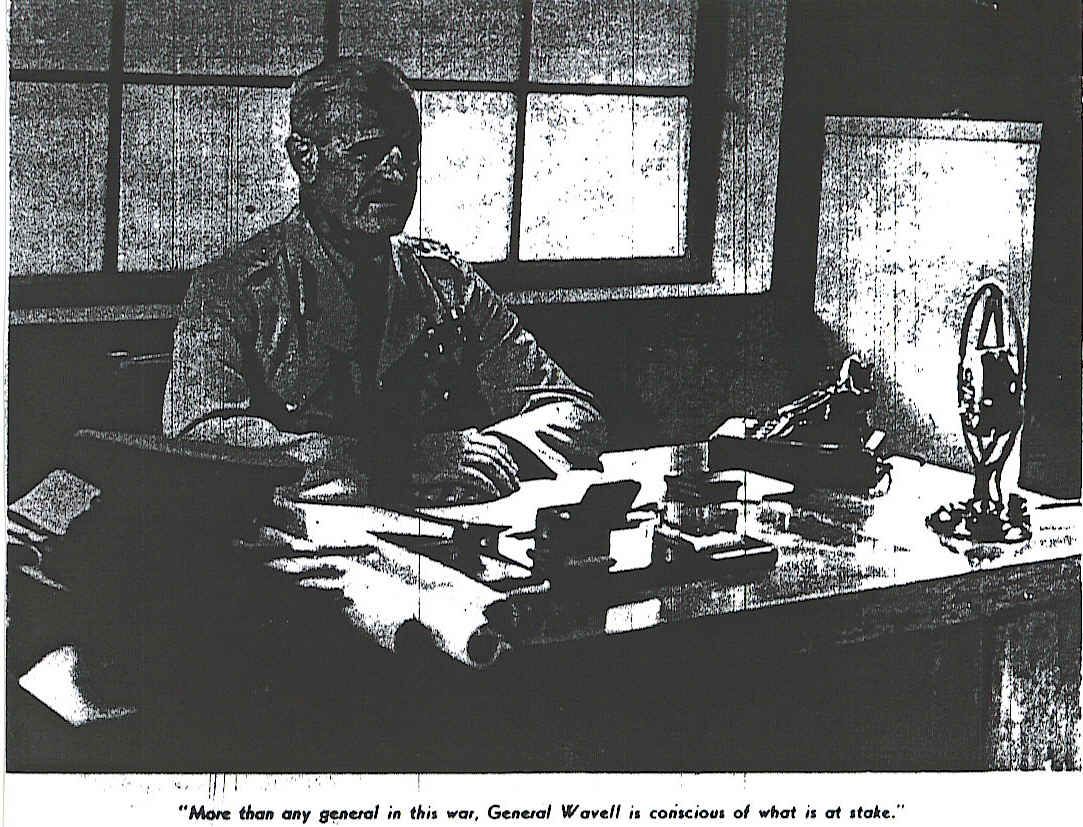
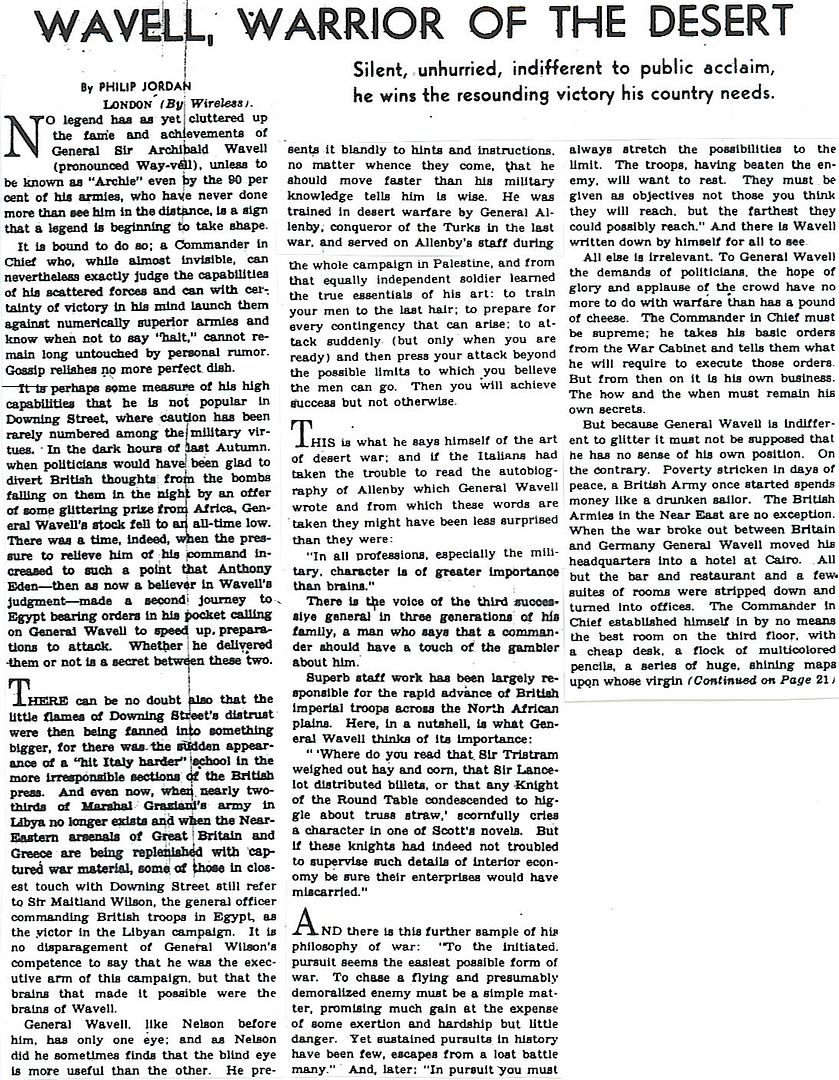
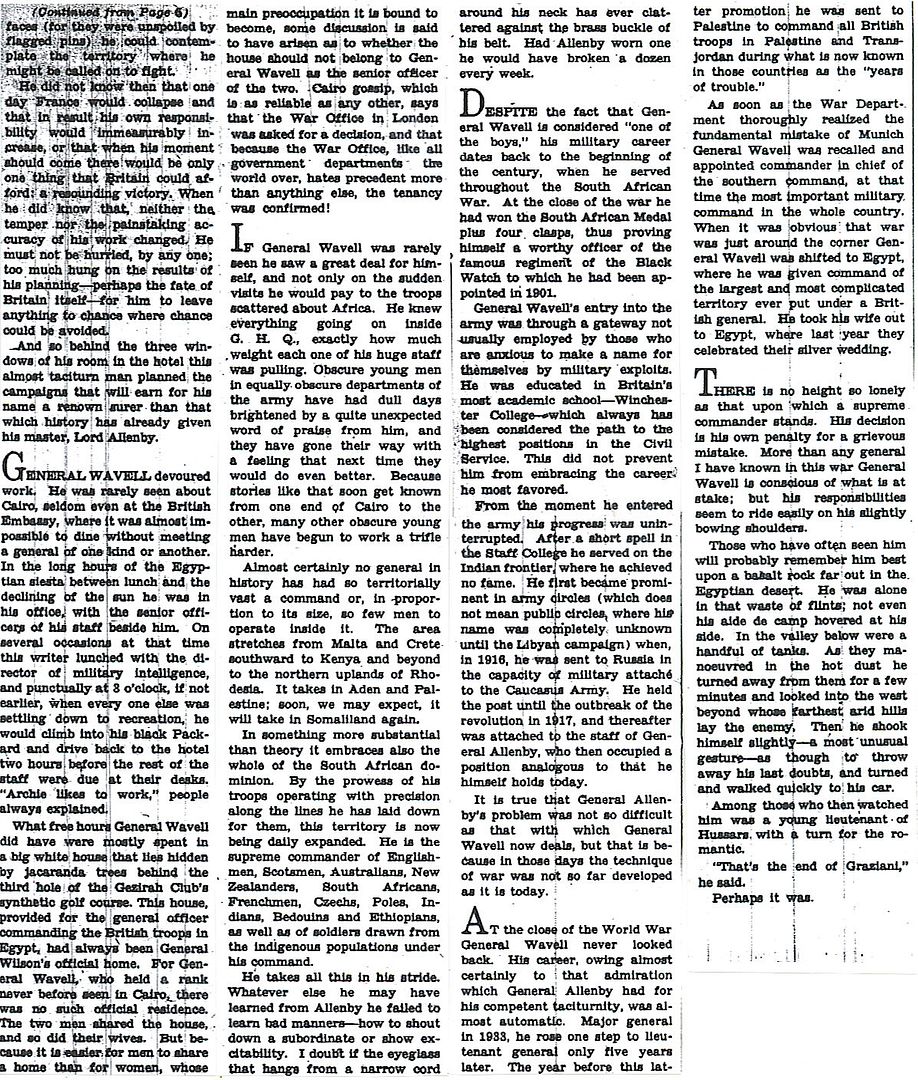
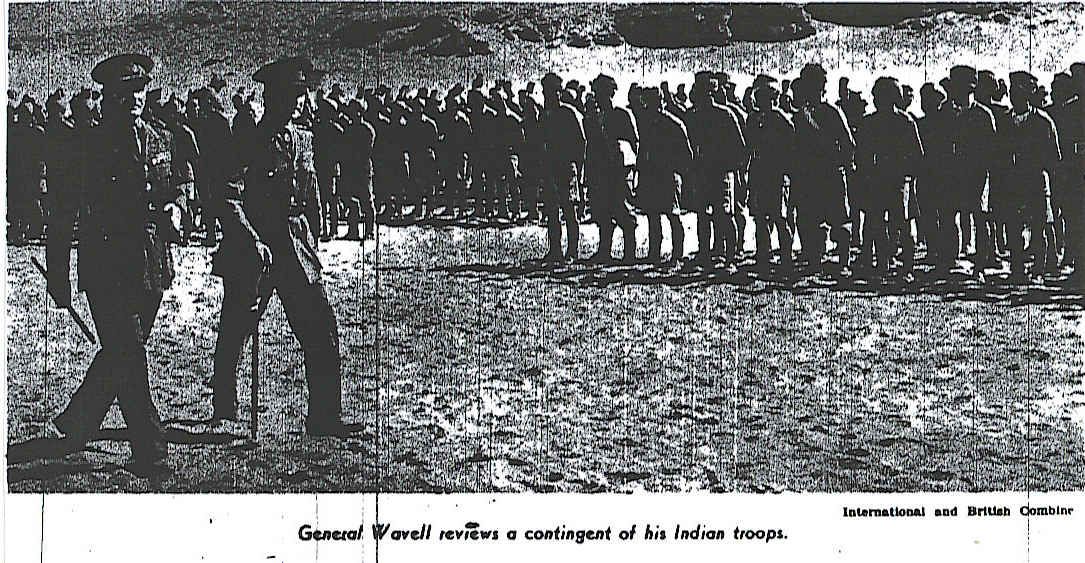
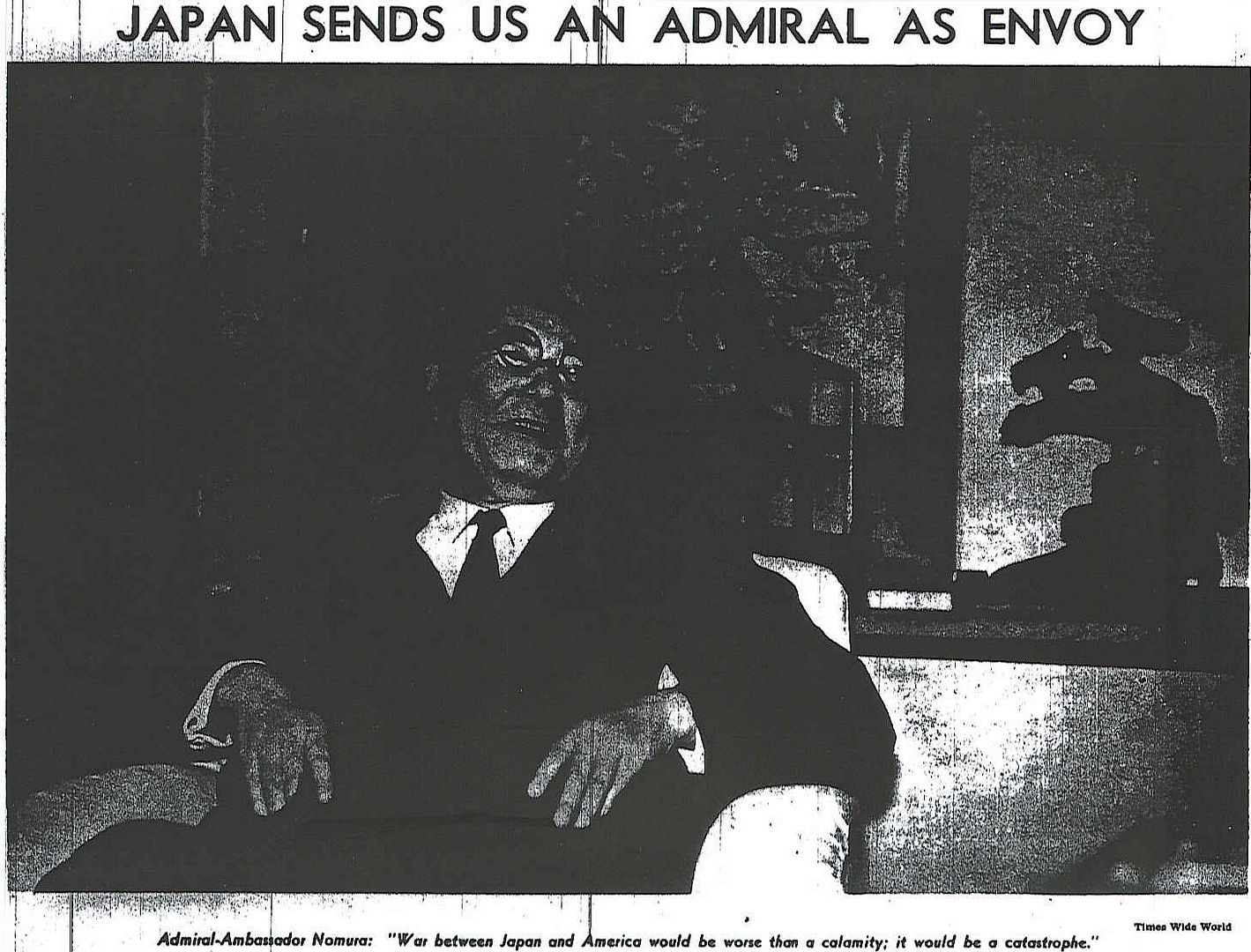
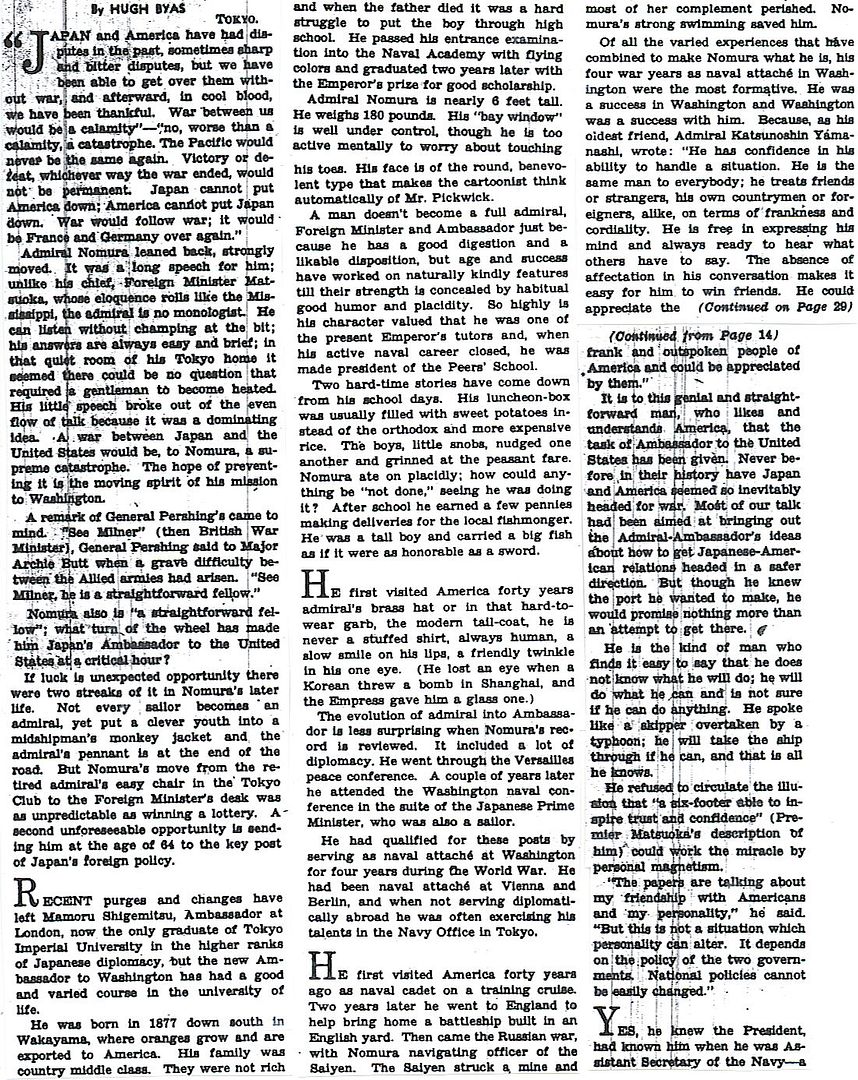
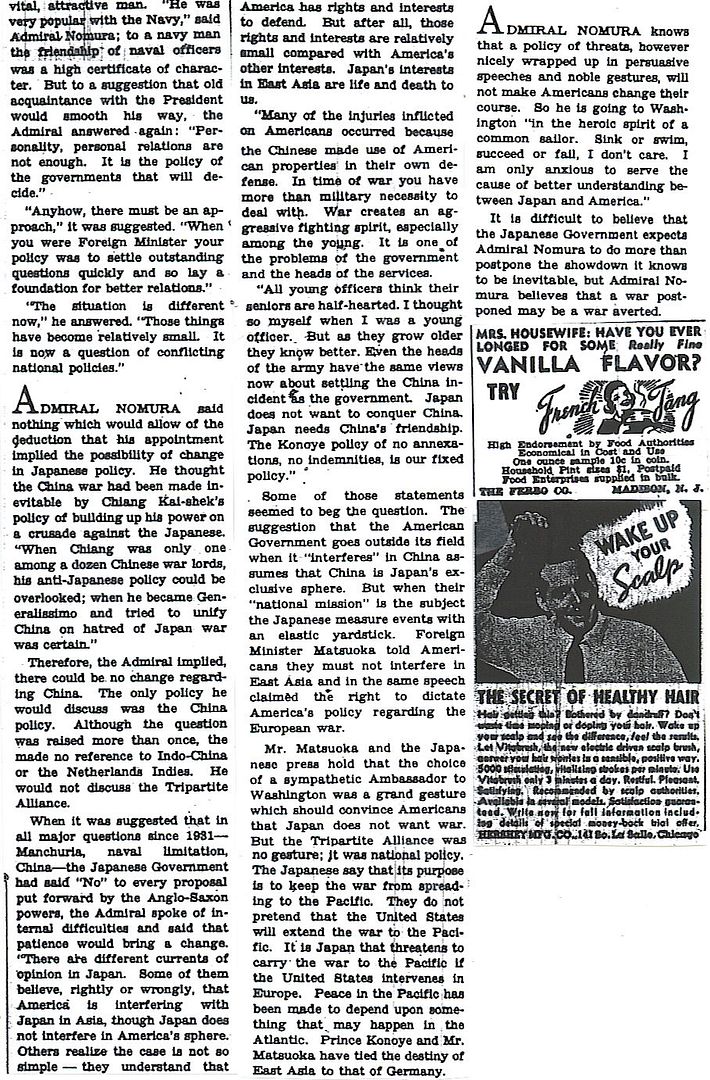
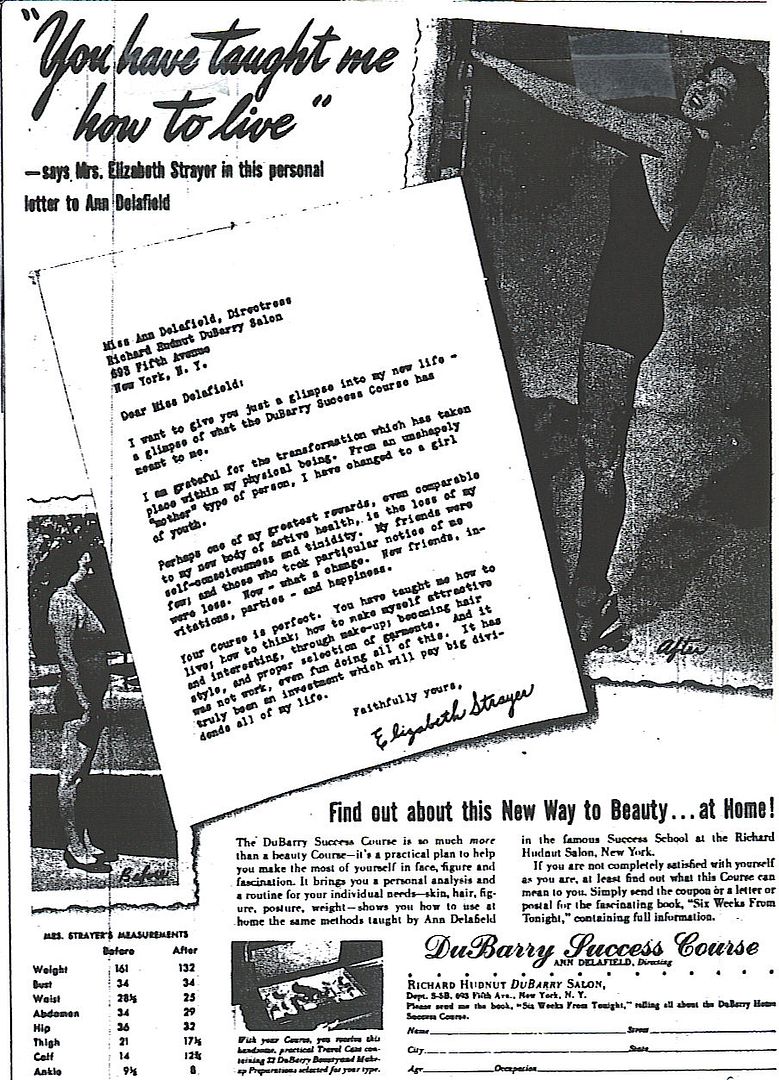
The News of the Week in Review
Twenty News Questions * – 9
Japan Moves Warily toward Her New Goal – 10
A Strategic Map of the Pacific – 11
The New York Times Book Review
Squadrons Up! A Firsthand Story of the R.A.F., by Noel Monks – 14
The Road to Victory: The Untold Story fo World war II’s Red Ball Express, by David P. Colley – 15
The New York Times Magazine
Wavell, Warrior of the Desert – 17-20
Japan Sends Us an Admiral as Envoy – 21-23
* Find the answers in the thread for this Saturday, February 12.
http://www.onwar.com/chrono/1941/feb41/f09feb41.htm
British troops leaving North Africa
Sunday, February 9, 1941 www.onwar.com
In North Africa... The British advance comes to a halt at El Agheila. There is little Italian opposition to prevent a further move, but Wavell is being compelled to withdraw troops which will be sent to Greece. He is also responsible for the campaign in East Africa and for making some provision for the defense of Palestine. In the near future, this will demand more of his attention because of German activity in Iraq and Syria.
In the Mediterranean... In an audacious attack the battleship Malaya and the battlecruiser Renown from Force H bombard the harbor at Genoa. The carrier Ark Royal also takes part in the operation, sending aircraft to attack Leghorn and La Spezia. Five ships in Genoa are sunk and 18 damaged. The Italians fail to attack the British force.
http://homepage.ntlworld.com/andrew.etherington/month/thismonth/09.htm
February 9th, 1941
UNITED KINGDOM: Churchill broke five months of radio silence today. He explained his absence from the airwaves by talking of “deeds, not words.”
It was a speech of praise and encouragement for both the forces and the civilians. “We have stood our ground and faced the two dictators in the hour of what seemed their overwhelming triumph, and we have shown ourselves capable, so far, of standing up against them alone.” The Prime Minister reserved particular praise for the victory two months ago over the Italians in Libya: “In barely eight weeks a campaign which will long be studied as a model of the military art, an advance of over 400 miles has been made.”
He went on to speak of the vital importance of American aid, concluding: “We shall not fail, or falter; we shall not weaken or tire. Neither the sudden shock of battle, nor the long drawn trials of vigilance and exertion will wear us down. Give us the tools and we shall finish the job.”
VICHY FRANCE: Marshal Philippe Petain today announced that he had appointed Admiral Francois Darlan as not only vice-premier, but also minister for foreign affairs, replacing Pierre-Etienne Flandin. And to underline Darlan’s triumph in the backstairs conflict with the former vice-premier, Pierre Laval, the marshal designated the admiral as his successor.
A year ago Darlan seemed the cheerful ally of the Royal Navy. Born into a family that has held commissions in the French navy since Trafalgar, Darlan was head of the officer’s training school, and in the 1930s helped to re-equip the fleet with new ships, including Strasbourg and Dunkerque. However, he was embittered by the British sinking of “his” ships at Oran last July.
MEDITERRANEAN SEA: Force H with HMS Ark Royal, HMS Renown and HMS Malaya sails into the Gulf of Genoa. The big ships bombard the city of Genoa firing 300 tons of shells onto dock installations, warehouses and the Ansaldo Electric works, while carrier aircraft bomb Leghorn, a major railway junction at Pisa and other rail connections, and lay mines off Spezia. An Italian battlefleet sorties but fails to make contact.
LIBYA: The British advance comes to a halt at El Agheila. There is little Italian opposition to prevent a further move, but General Archibald Wavell, Commander in Chief Middle East Command, is being compelled to withdraw troops which will be sent to Greece. He is also responsible for the campaign in East Africa and for making some provision for the defence of Palestine. In the near future, this will demand more of his attention because of German activity in Iraq and Syria. (Jack McKillop)
CANADA: HMS Mayflower and Snowberry (with Canadian COs) departed Halifax as local escort for the 47-ship convoy HX-108, bound for Liverpool. Both ships were Flower-class corvettes. Both ships had recently been delivered from Canadian shipyards and were subsequently completed in British yards on the Tyne River. Mayflower was fitted with a ‘dummy’ 4-inch gun built of wood for the transit to the U.K., an infamous example of the inferior condition of the early wartime Emergency Expansion Plan warships of the RCN. Although guns were acquired later, technological inferiority plagued the RCN until relatively late in the war. (Dave Shirlaw)
ATLANTIC OCEAN: At 0430, U-37 fired torpedoes at the convoy HG-53 about 160 miles southwest of Cape St. Vincent, Portugal and sank two ships, Courland and Estrellano. At 0545 another attack was made in grid CG 7554, but the torpedo missed the ships in station #61 and #31 and did not hit a ship beyond them, as thought. The master and 25 crewmembers from Courland (Master Robert Cecil Smith) were lost. Two crewmembers and two gunners were picked up by sloop HMS Deptford and landed at Liverpool. The master, 19 crewmembers and one gunner from Estrellano (Master Fred Bird) were picked up by the Brandenburg, transferred to HMS Deptford and landed at Liverpool. Six crewmembers were lost. (Dave Shirlaw)
http://worldwar2daybyday.blogspot.com/
Day 528 February 9, 1941
At 8.15 AM, British Force H from Gibraltar (battleships HMS Malaya & HMS Renown and cruiser HMS Sheffield, escorted by aircraft carrier HMS Ark Royal & 10 destroyers) bombards Genoa, Italy, with 273 15-inch, 782 6-inch and 400 4.5-inch shells. Only 4 merchant ships and a training vessel are sunk and 18 ships damaged of 55 ships in Genoa harbour. Docks and industrial areas are also damaged and the cathedral is hit with a 15-inch shell that does not explode (144 Italians killed, mainly civilians). 1 Swordfish from Ark Royal is shot down. Italian fleet (battleships Vittorio Veneto, Cesare & Doria, cruisers Trento, Trieste & Bolzano and 10 destroyers) attempts to intercept the British warships returning to Gibraltar but fails due to lack of air reconnaissance, poor visibility and confusion over a French merchant convoy of 6 ships heading to Corsica.
Operation Compass. British and Australian troops reach El Agheila, 100 miles along the coast from Beda Fomm but this is as far as they will advance. While General Wavell is supportive of O’Connor’s plans to move on Tripoli, Churchill has already decided to send troops to Greece from North Africa.
At 8.30 AM off Newfoundland, German battlecruisers Scharnhorst and Gneisenau spot Allied convoy HX-106. Under orders not to engage British capital ships, they withdraw at 10 AM on discovering British battleship HMS Ramilies in the convoy escort.
At 4.30 AM 435 miles West of Gibraltar, U-37 attacks convoy HG-53 sinking British steamers SS Estrellano (5 killed, 20 crew and 1 gunner picked up by sloop HMS Deptford although cabin boy John McIntyre dies the next day) and SS Courland (3 killed, 27 survivors picked up by British SS Brandenburg). U-37 calls in an air strike. 5 Focke Wulf 200 bombers from Bordeaux sink British SS Jura, SS Dagmar I, SS Brittanic & Norwegian SS Tejo (and damage British SS Varna which sinks on February 15).
Cruiser HMS Neptune is damaged by German bombing at Plymouth, after arriving yesterday for a refit following duty in the South Atlantic.
Homer,
Do you have access to the article that describes Ambassador Winant’s speech calling for “social justice?” It’s interesting to see that term used so many years ago.
Thanks!
I will make a note to get the entire article on my next news-gathering mission. That is currently scheduled for Feb. 19, subject to change.
Didn’t get to these until late, but here they are.
1. I should know this word. I’m thinking it is to take control of. Vichy is after all a puppet government of the Nazi’s who are getting a little more independent than even I expected.
2. (b) guarding a convoy
3. Since the second flag is clearly Italy’s, I’ll say the first one is the flag of Ethiopia’s government in exile.
4. Sumatra, Java, and Dutch Borneo are three I can think of.
5. (d) an independent nation
6. The moon
7. (b) The War of the Roses association just seems right, otherwise this is just a guess.
8. I’d say Anglophobe.
9. I am not familiar with the Chaco War. Let’s guess Brazil and Bolivia.
10. I don’t know about the first one. Swope replaced Leahy as governor of Puerto Rico.
11. Sure, why not.
12. Ensign. (I’m glad I didn’t have to put anything in order this time)
13. 3/4th of 48. That would be 36.
14. (b) Joseph W. Martin, Jr.
15. Doesn’t this vary depending on where you are? I’ll guess 5 miles.
16. Belgium, Poland, Netherlands
17. That’s just a voice vote.
18. Highest to lowest, but I have no idea so here we go. (b) ambassador, (d) minister, (c) charge d’affaires, (a) envoy extraordinary
19. I’ll guess (c)
20. The Department of the Treasury.
-3.92 points, or 80% correct. Good job!
Well, I’ll take that 83% on 15. I had really written that one off.
Here you go.
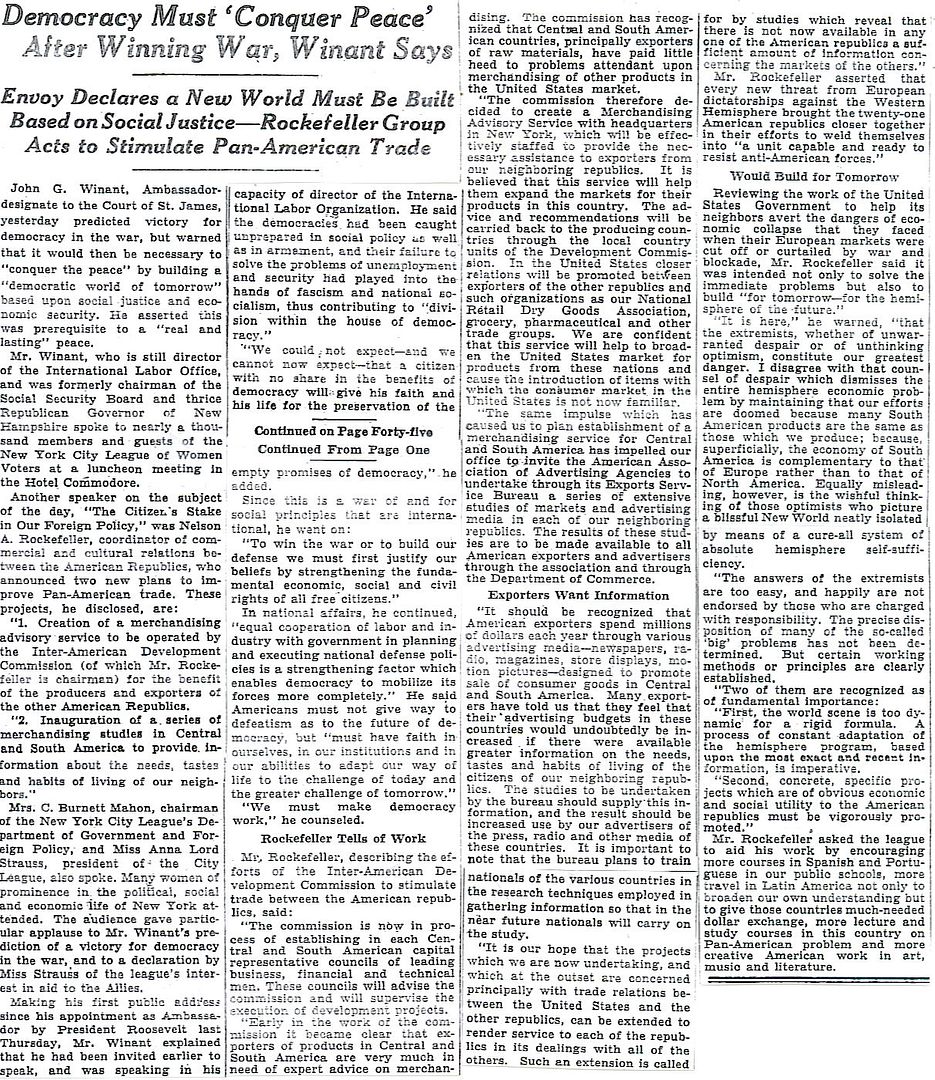
Disclaimer: Opinions posted on Free Republic are those of the individual posters and do not necessarily represent the opinion of Free Republic or its management. All materials posted herein are protected by copyright law and the exemption for fair use of copyrighted works.